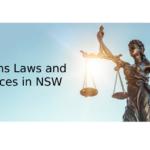Sydney Lawyer Not Entitled to Exorbitant Legal Fees

The NSW Court of Appeal has ruled that Sydney solicitor Leigh Johnson won’t be collecting over $2 million in legal fees she billed to an elderly couple for her services.
The final chapter in a long legal battle
The decision puts an end to the legal stoush that began in 2007, when Ms Johnson was engaged by Australian Institute of Music (AIM) founders Peter Calvo (who has since died) and his wife Athalie to represent them in a court case to recover shares in the company from their accountant.
AIM is Australia’s largest private music school. The Calvos took their accountant to court to recover shares they said were rightfully their own.
When engaging Ms Johnson, the couple signed a cost agreement for her to charge $500 an hour, or $300 per hour for work done by others. But the Calvos, who were in financial trouble at the time, signed a separate document about a fortnight later giving Ms Johnson permission to seize 32.5 per cent of the shares in AIM if she won the case; which was almost all of the disputed shares.
The Calvos won the case in December 2009 with the assistance of Ms Johnson. Almost immediately thereafter, the lawyer turned up at St Vincent’s Hospital where Dr Calvo was recovering from a stroke he had had the day before. She asked Dr Calvo and his wife to sign documents facilitating the share transfer.
Then, in 2015, Ms Johnson sent the Calvos a bill for her services, totalling more than $2.3 million. The couple had already paid $55,000, and decided to go to court to dispute the remaining fees, questioning the number of hours spent and people required to undertake the work.
When the case went to the Supreme Court last year, Justice Patricia Bergin struck down the transfer of shares but said the earlier agreement relating to legal fees remained valid.
Her Honour delivered scathing remarks about the conduct of the Ms Johnson, finding that the “unfairness of the situation is of breathtaking proportion” and ruling the lawyer had engaged in “inappropriate tactics”.
“The circumstances surrounding the execution of the transfer of shares at St Vincent’s Hospital when Dr Calvo was so very ill, and when Mrs Calvo was extremely distressed, demonstrates the type of tactics to which Ms Johnson would stoop,” Justice Bergin said.
The Judge expressed “no doubt that Ms Johnson understood the unfairness and inappropriateness of her conduct in securing signatures on this document at such a time”.
But that did not signal the end of the matter. Mrs Calvo appealed the decision regarding the total fees, with her lawyers seeking an order that Ms Johnson be “permanently restrained from taking any step to recover any amount” for the legal work claimed.
Court of Appeal ends battle
The NSW Court of Appeal heard the case over two days last week, with Justices Julie Ward, Fabian Gleeson and Mark Leeming ruling that Ms Johnson could not recover fees beyond the $55,000 already paid.
Ms Johnson’s lawyers submitted she had only been paid $55,000 for “three years of working solidly on their ‘unwinnable’ case” and that Mrs Calvo had “cried and begged” her to act for the couple with no money paid up front.
Nevertheless, the court ruled in favour of the Calvos.
Justice Ward found that the costs itemised in the “very belated” bill were “remarkable, both in terms of the amount and in terms of the hours of work there recorded“.
Justice Leeming, with whom Justices Ward and Gleeson agreed, said there was much in the bill “which is of concern“, including that the bulk of the work had been done six years earlier.
“The amounts appear to be out of all proportion with amounts that could properly be charged,” Justice Leeming said.
“It is difficult to conceive how Ms Johnson could ever have properly charged anything close to those amounts.”
Unfortunately, not all lawyers act fairly when it comes to legal fees. If you feel you are being overcharged by a lawyer, you can make a complaint to the Legal Services Commissioner, seek a cost assessment from a Supreme Court Cost Assessor or consider taking civil action.






